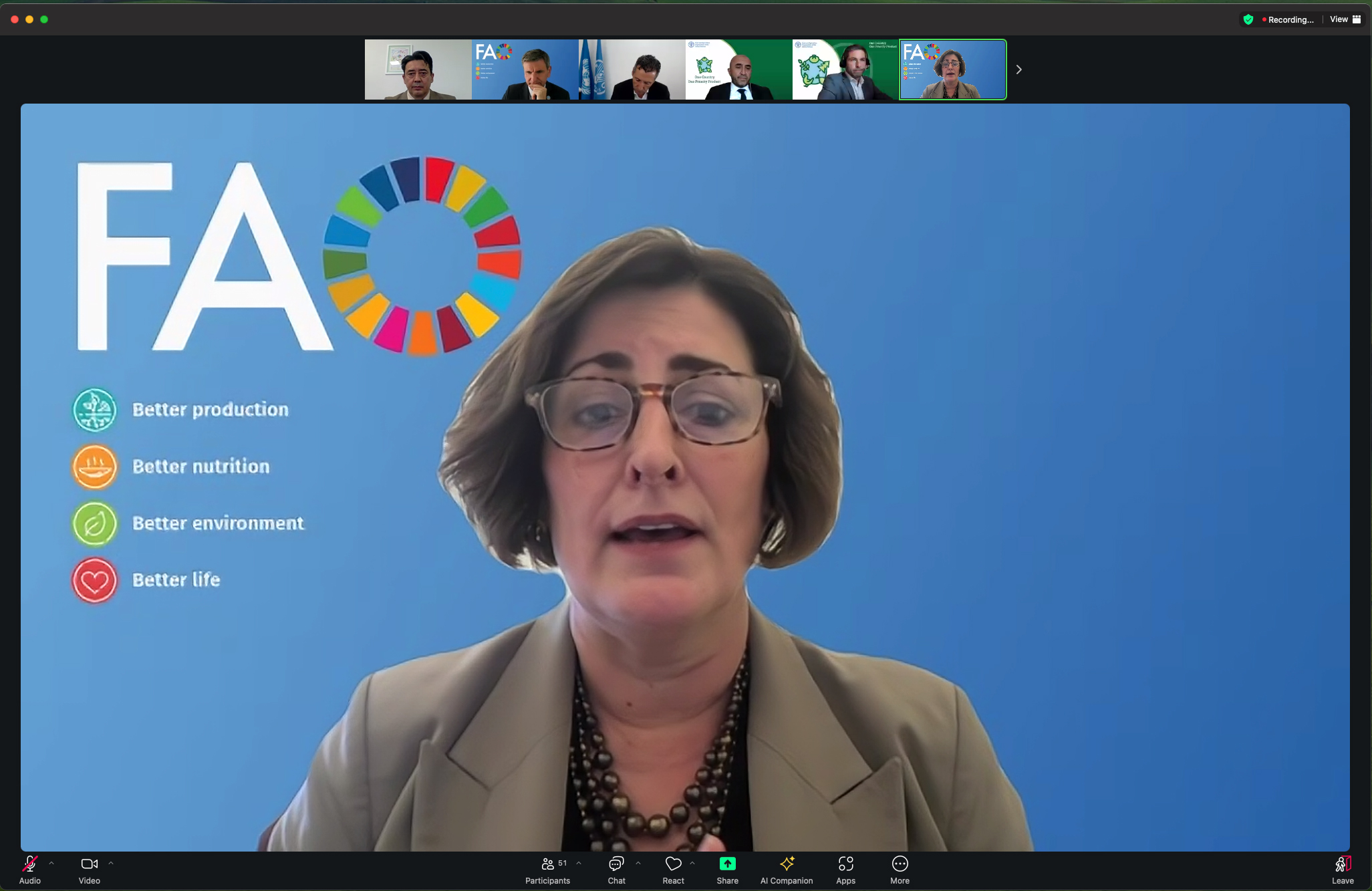News
Regional group set to promote special agricultural products in Europe and Central Asia
The first meeting of the Regional Organizing Group for One Country One Priority Product initiative in Europe and Central Asia gathered experts and stakeholders to coordinate efforts for sustainable development of special agricultural products in the region.

The first meeting of the FAO Regional Organizing Group for the OCOP in Europe and Central Asia region.
©FAO/MH Kawsar Rudro
Budapest: The FAO hosted the inaugural meeting of the Regional Organizing Group (ROG) for the One Country One Priority Product (OCOP) initiative in Europe and Central Asia on September 19, 2024. The virtual meeting gathered high-level FAO representatives, national focal points, and stakeholders from the region to coordinate efforts on the sustainable development of Special Agricultural Products (SAPs) and enhance regional food security.
The OCOP, a flagship FAO initiative, helps countries identify and promote their unique agricultural products, or SAPs, which have special characteristics tied to local geography and cultural heritage. The initiative also facilitates access to regional and global markets. Eleven countries in Europe and Central Asia have joined OCOP, focusing on products such as chestnuts (Albania), pomegranates (Azerbaijan), wine (Georgia), and figs (Türkiye).
Meeting highlights: ROG’s role in driving OCOP forward
FAO Assistant Director-General and Regional Representative for Europe and Central Asia, Mr. Viorel Gutu, opened the meeting by emphasizing the OCOP initiative’s transformative potential in creating sustainable and inclusive value chains. FAO Deputy Director-General, Ms. Beth Bechdol, highlighted the region’s agricultural diversity and stressed the ROG’s critical role in advancing OCOP in the region.
“This region contributes significantly to global and regional food security with the production of cereals, fruits, vegetables, meat, and fish,” said Ms. Bechdol. “We expect this Regional Organizing Group will serve as an effective platform to support OCOP countries, promote the exchange of knowledge, and identify partnership opportunities to mobilize resources.”

FAO Deputy Director-General, Ms. Beth Bechdol delivering opening remarks. © FAO/MH Kawsar Rudro
Participants endorsed the Terms of Reference and composition of the ROG, which will oversee OCOP planning and coordination. Updates were provided by Mr. Hafiz Muminjanov, Global OCOP Coordinator, who reported that 87 countries across five FAO regions have committed to promoting 55 SAPs, with $18.7 million mobilized to support 61 countries. Regional updates were shared by Mr. Pedro Arias, OCOP Regional Coordinator for REU.
Detailed updates on the implementation of OCOP projects in demonstration countries like Uzbekistan and Georgia, which are pioneering sustainable models for agri-food systems, were also shared. Experts from both nations presented their progress, sharing lessons learned and plans for scaling the initiative’s impact.
ROG Structure and Responsibilities
The ROG is chaired by Mr. Viorel Gutu, with FAO Regional Programme Leader for Europe and Central Asia, Mr. Raimund Jehle, serving as Co-Chair. Vice-Chairs include Mr. Thomas Glauben of the Leibniz Institute of Agricultural Development, Ms. Iride Ceccacci from the European Bank for Reconstruction and Development (EBRD), and Mr. Botir Dosov from the Central Asia and Caucasus Association of Agricultural Research Institutions (CACAARI). Members are FAO Country Representatives from REU OCOP countries. The Secretariat includes Mr. Pedro Arias, and Ms. Cholpon Esenbekova from FAO REU office. Observers, as needed, include Ms. Pinar Erdil, Deputy Secretary General of Izmir Commodity Exchange; Mr. Chris Clubb, Managing Director of Convergence, the Global Network for Blended Finance; and Mr. Tobias Gräs, Senior Policy Advisor at the Danish Agriculture & Food Council.
The ROG will be responsible for coordinating and overseeing the implementation, monitoring, and reporting of OCOP activities, aligning them with FAO’s Strategic Framework for 2022-31 and the Sustainable Development Goals (SDGs). The group will also strengthen partnerships, mobilize resources, and provide strategic input to the OCOP Secretariat and Steering Committee based on regional experiences.
Looking ahead: a commitment to sustainable agriculture
The meeting concluded with a general discussion among participants on the way forward for OCOP implementation at regional and national levels. The meeting sets the stage for a promising journey towards sustainable agriculture in the REU region, with diverse stakeholders who are united in their commitment to this transformative initiative.
Concluding the meeting, Mr. Gutu reaffirmed FAO’s dedication to supporting the region in achieving its OCOP goals. “We will continue to work closely with our partners to ensure OCOP remains a key driver of sustainable agricultural transformation in Europe and Central Asia,” he stated.
- Workshop: Promoting long-term, sustainable, green development and resilience of the table grape value chain
- Regional Knowledge Platform on One Country One Priority Product (OCOP) in Europe and Central Asia
- Investment accelerates resilient and sustainable agrifood sector in Republic of Moldova
- Analysis of the table grape value chain will provide a roadmap for sector growth
- Sustainable chestnut production boosts rural development
